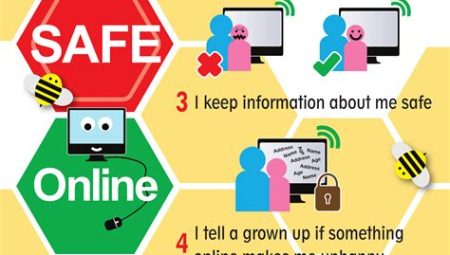In today’s digital age, social media has become an integral part of our daily lives. From scrolling through our newsfeeds to posting photos and sharing updates, it’s undeniable that social media has a significant impact on our behavior and mental well-being. In this blog post, we will delve into the psychology of social media use and explore the various factors that influence our online interactions. From understanding the motivations behind our social media use to dissecting the addictive nature of these platforms, we will examine how social media affects our self-esteem, body image, and interpersonal relationships. Additionally, we will address the issues of social comparison, loneliness, and online bullying that arise from excessive social media use. Moreover, we will discuss FOMO (Fear of Missing Out) and its psychological implications, as well as provide strategies for maintaining a healthy social media mindset. Join us as we unravel the complexities of social media and its impact on our psychological well-being.
Table of Contents
Motivations for using social media
In today’s digital age, the use of social media has become ubiquitous, with billions of people around the world logging on to various platforms on a daily basis. There are various motivations that drive individuals to engage with social media, and understanding these motivations can provide valuable insights into the impact that social media has on our lives.
One of the primary motivations for using social media is the need for connection and belonging. Social media platforms provide individuals with the ability to stay connected with friends, family, and acquaintances, regardless of geographical distance. This sense of connection can provide a feeling of belonging and social support, which is particularly valuable in today’s fast-paced and often isolating world.
Another motivation for using social media is the desire for self-expression. Platforms such as Instagram, Facebook, and Twitter allow individuals to share their thoughts, experiences, and creativity with a wide audience. The ability to curate and share one’s life through photos, videos, and written posts can be a powerful form of self-expression and validation.
Furthermore, the opportunity for information and entertainment is a key motivation for using social media. With the vast amount of content available on platforms such as YouTube, TikTok, and Snapchat, individuals can easily access news, entertainment, and educational resources. This constant stream of information and entertainment can be both informative and distracting, serving as a motivation for regular social media use.
Impact of social media on self-esteem
Social media has significant impacts on our self-esteem and mental health. With the constant exposure to curated and idealized versions of people’s lives on platforms like Instagram and Facebook, it’s easy to fall into the trap of comparison. When we see others living seemingly perfect lives, it can lead to feelings of inadequacy and low self-worth.
This constant comparison can also lead to a phenomenon known as social comparison, where individuals evaluate themselves in comparison to others. This can have detrimental effects on self-esteem, as individuals may feel like they don’t measure up to the seemingly perfect lives of others. This can lead to feelings of depression, anxiety, and overall dissatisfaction with one’s own life.
Furthermore, the addictive nature of social media can also have a negative impact on self-esteem. Constantly seeking validation through likes and comments can lead to an unhealthy reliance on external validation, rather than building a strong sense of self-worth from within. This can have long-term implications on mental health and self-esteem.
It’s important to recognize the impact that social media can have on our self-esteem and take steps to mitigate its negative effects. Setting boundaries for our social media use, unfollowing accounts that make us feel inadequate, and building a strong sense of self-worth offline can all work towards improving our self-esteem in the age of social media.
The addictive nature of social media
Social media has become an integral part of our daily lives, playing a significant role in how we communicate, stay informed, and entertain ourselves. However, the addictive nature of social media has increasingly become a cause for concern, as individuals find themselves spending excessive amounts of time scrolling through their feeds, posting updates, and seeking validation from their online presence.
The instant gratification provided by likes, comments, and shares on social media platforms can trigger the release of dopamine in the brain, leading to a cycle of reward and reinforcement that keeps users coming back for more. This addictive cycle can lead to decreased productivity, disrupted sleep patterns, and feelings of anxiety and inadequacy when not actively engaged with social media.
Moreover, the design of social media apps, with their infinite scroll and autoplay features, is intentionally crafted to keep users engaged for as long as possible, further fueling the addictive behavior and making it difficult for individuals to disengage from their screens.
It is essential for individuals to recognize the addictive potential of social media and take proactive steps to limit their usage, set boundaries, and find alternative ways to seek fulfillment and connection outside of the digital realm.
Social comparison and its effects on mental health
Social comparison, the act of comparing oneself to others in various aspects such as appearance, success, or happiness, has become increasingly prevalent in the age of social media. The constant exposure to carefully curated and often unrealistic representations of other people’s lives can have detrimental effects on one’s mental health.
Excessive social comparison can lead to feelings of inadequacy, low self-esteem, and increased levels of anxiety and depression. Individuals may feel pressured to live up to the standards set by others, leading to self-doubt and a negative self-image.
Furthermore, the online environment fosters a culture of competition and comparison, where individuals strive to gain approval and validation through their online presence. The incessant need for likes, comments, and followers can exacerbate feelings of worthlessness and perpetuate a cycle of seeking external validation for self-worth.
It is crucial to recognize the potential impact of social comparison on mental health and take proactive steps to mitigate its effects. Limiting time spent on social media, curating one’s online feed to include positive and diverse content, and practicing self-compassion and gratitude can help individuals cultivate a healthier relationship with social media and protect their mental well-being.
Influence of social media on body image
Social media has a significant influence on individual’s body image. With the rise of social media platforms such as Instagram, Facebook, and Snapchat, there has been a surge in the portrayal of unrealistic beauty standards. Users are bombarded with images of flawless and airbrushed bodies, which can lead to feelings of inadequacy and low self-esteem.
Constant exposure to these idealized body types on social media can contribute to the development of negative body image issues. Many individuals compare themselves to these unrealistic standards and may feel dissatisfied with their own appearance, leading to a distorted perception of their bodies.
The relentless pursuit of the perfect body, as depicted on social media, can also lead to unhealthy behaviors such as extreme dieting, excessive exercise, or even the use of harmful substances in an attempt to attain an idealized physique.
It is important to recognize the role of social media in shaping perceptions of body image and to promote a more realistic and diverse representation of beauty. By fostering a culture of acceptance and inclusivity, we can mitigate the detrimental effects of social media on body image and promote a healthier relationship with one’s body.
Social media and loneliness
Social media platforms have become an integral part of our daily lives, providing us with a means to connect with others and share our experiences. However, the increasing reliance on social media has also raised concerns about the impact it may have on our mental well-being, particularly in relation to loneliness.
Research has shown that excessive use of social media can lead to feelings of loneliness and isolation. While social media enables us to stay connected with friends and family, it can also create a false sense of social connection, as our interactions are often limited to digital communications. This can result in individuals feeling disconnected from meaningful relationships, leading to increased feelings of loneliness.
Furthermore, the curated nature of social media content can exacerbate feelings of loneliness by presenting an idealized version of others’ lives. Constant exposure to carefully crafted images and stories of seemingly perfect relationships and experiences can lead individuals to compare their own lives, resulting in a sense of inadequacy and social isolation.
To combat the negative impact of social media on loneliness, it’s important to cultivate awareness of our online interactions and make an effort to engage in meaningful face-to-face interactions. By balancing our social media usage with real-life connections, we can maintain a healthier social and emotional well-being.
The role of social media in online bullying
Social media has undeniably changed the way we communicate and interact with one another. With the rise of social platforms like Facebook, Instagram, Twitter, and others, the prevalence of online bullying has also become more prominent. The anonymity that social media provides has made it easier for individuals to engage in harmful and hurtful behavior towards others, often without fear of consequences.
Cyberbullying, which refers to the use of electronic communication to bully others, has become a widespread issue in today’s digital age. Through social media, individuals can easily spread rumors, share hurtful messages, and even engage in targeted harassment towards their victims. The impact of cyberbullying can be devastating, leading to emotional distress, low self-esteem, and even mental health issues for those who are targeted.
Furthermore, the viral nature of social media means that harmful content can quickly be shared and perpetuated, reaching a wide audience in a matter of minutes. This amplifies the impact of online bullying, making it difficult for victims to escape the negative effects of the harmful behavior directed towards them.
It is important for social media platforms to recognize the role they play in facilitating online bullying and to take steps to address and prevent such behavior. This includes implementing stronger policies and tools to report and remove harmful content, as well as promoting kindness and empathy within their online communities.
FOMO (Fear of Missing Out) and its psychological implications
Social media has become an integral part of our everyday lives, offering us the ability to connect with friends, family, and the world at large. However, with the constant updates, check-ins, and posts that flood our feeds, it’s no wonder that many people experience FOMO – the Fear of Missing Out. This fear is driven by the constant comparison to others, the fear of being left out of social events or gatherings, and the pressure to constantly be in the loop.
Research has shown that FOMO can have significant psychological implications, leading to feelings of anxiety, inadequacy, and even depression. The constant exposure to the highlight reels of others’ lives can create a distorted sense of reality, leading individuals to believe that their own lives are not as fulfilling or exciting. This can lead to a negative impact on self-esteem and overall mental well-being.
Furthermore, the addiction to social media as a means to alleviate FOMO can lead to a cycle of compulsive checking, always seeking the next big event or experience in fear of missing out. This can lead to decreased productivity, disrupted sleep patterns, and an overall negative impact on one’s ability to engage in real-life activities and relationships.
It’s important to recognize the psychological implications of FOMO and to take steps to mitigate its effects. This may include limiting time spent on social media, practicing mindfulness, and focusing on gratitude for the present moment. By doing so, individuals can better manage their FOMO and cultivate a healthier relationship with social media and their own well-being.
Effect of social media on interpersonal relationships
Social media has undoubtedly changed the way we interact with one another, both positively and negatively. The constant connectivity that social media provides has made it easier to stay in touch with friends and family, regardless of distance. However, this same constant connectivity has also had a significant impact on the quality of our interpersonal relationships.
The ubiquity of social media has led to a shift in how we communicate with one another. Instead of engaging in face-to-face conversations or phone calls, many people now prefer to communicate through social media platforms. While this can make communication more convenient, it can also lead to a lack of depth and sincerity in our interactions. Genuine emotional connections may be replaced with likes, comments, and emojis, leading to a superficial exchange that can ultimately impact the quality of our relationships.
In addition to altering the way we communicate, social media’s influence on interpersonal relationships can also be seen in the way we perceive and present ourselves. The pressure to present a polished and aspirational version of ourselves on social media can lead to feelings of insecurity and inadequacy when comparing ourselves to others. This can create discontentment and negatively impact our ability to form and maintain meaningful connections with others.
Overall, while social media has the potential to strengthen and facilitate interpersonal relationships, it also has the power to weaken and hinder them. It is important for individuals to be mindful of the ways in which social media may be impacting their relationships and to actively seek to maintain authentic and meaningful connections in the digital age.
Strategies for maintaining a healthy social media mindset
In the age of social media, it’s important to prioritize our mental health and well-being. The constant exposure to curated and often unrealistic portrayals of life on platforms such as Instagram and Facebook can take a toll on our self-esteem, mental health, and overall happiness. However, there are strategies that can help us maintain a healthy mindset while using social media.
One strategy for maintaining a healthy social media mindset is to limit our usage of these platforms. Spending excessive amounts of time scrolling through our feeds can lead to feelings of inadequacy and FOMO. Setting time limits for social media usage and taking regular breaks can help prevent the negative effects that come with overexposure.
Practicing mindfulness is another effective strategy for maintaining a healthy social media mindset. Being aware of our emotions and reactions while using social media can help us identify when we’re feeling triggered or envious. Mindfulness techniques, such as deep breathing and grounding exercises, can help us stay present and focused, reducing the likelihood of negative feelings associated with social media.
Additionally, curating our feed can play a significant role in maintaining a healthy social media mindset. Unfollowing accounts that make us feel inadequate or unhappy, and following those that promote positivity, inspiration, and self-acceptance can create a more uplifting and enriching experience while using social media.
Finally, it’s crucial to separate our self-worth from our online presence. Understanding that social media is a highlight reel and not an accurate representation of reality can help us maintain a healthy perspective. Finding value in real-life connections, hobbies, and personal achievements outside of social media can also contribute to a balanced mindset.





